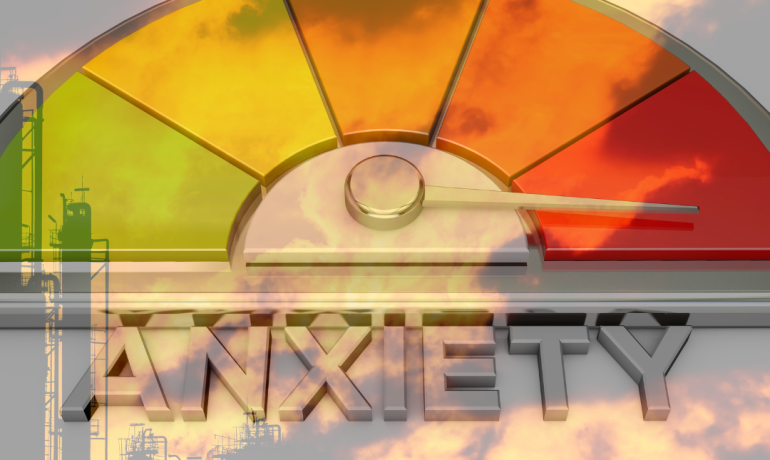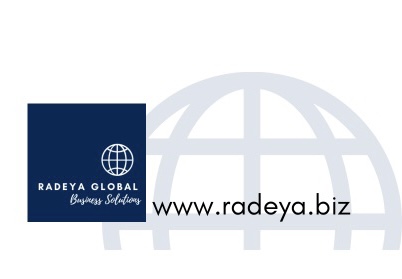London, 27th October: A research paper from Imperial College London, Affinity Health, and burnout prevention consultancy, Softer Success® has revealed how eco-anxiety contributes to poor mental health and burnout at work, impacting employee wellbeing and productivity. The research paper outlines the workplace risks of eco-anxiety, as well what employers can do to minimise the risks.
Eco-anxiety is a term used to describe the emotional and psychological impact of having an awareness of, witnessing or engaging with climate and ecological breakdown. [The American Psychology Association (APA) describes eco-anxiety as “the chronic fear of environmental cataclysm that comes from observing the seemingly irrevocable impact of climate change and the associated concern for one’s future and that of next generations”.] The research paper identifies that those experiencing eco-anxiety could become burnt out and less productive. This chance is increased when employers fail to implement and prioritise sustainability goals for their organisation.
The paper identifies the four major risks of employees who suffer with eco-anxiety:
1. Eco-anxiety can contribute to poor mental health and burnout at work
Research has shown that burnout is more prevalent when there is a misalignment of values at work and a sense of organisational injustice. If an employee has strong emotions about the breakdown of their environment, yet their organisation is taking no clear action, this could exacerbate their worry and anxiety by making them feel as though their own values and work values are misaligned, and organisational injustice is present, thus causing burnout.
2. People ‘bringing’ eco-anxiety to work
Research has shown that people who have been exposed to the direct impacts of ecological breakdown are more likely to experience mental health impacts, including anxiety, depression and PTSD. Some organisations will have operations in territories where direct impacts are widespread. Other organisations will employ workers who have been forced to migrate due to climate change impacts, or who have families and other loved ones living in severely affected countries and regions. Organisations need to understand the challenges their workers face and provide targeted support.
3. Eco-anxiety is exacerbated within specific work roles and the conditions of work
Occupational research on eco-emotions has concentrated on impacts on the ‘climate frontline’. Environmental researchers and conservationists have been found to be impacted by eco-emotions, including anxiety, trauma and burnout; and humanitarian activists (whose work may often include an environmental component) have been found to be at high risk of burnout.
4. The need for support for those who experience eco-anxiety at work
The impact of eco-anxiety on employees must be acknowledged by organisations, and strategies must be put in place that incorporate coping strategies and positive action whilst considering the need to protect from climate action burnout. Organisations must present employees with opportunities to engage in collective action to make a positive change to their environment within a workplace setting (e.g. more environmentally considerate ways of working, and championing employees to take action outside of working hours) to mitigate and manage eco-anxiety, in order to prevent burnout.
The paper also details five ways in which organisations can help employees cope, prevent burnout, reduce eco-anxiety and enhance wellbeing:
1. Take responsibility as an organisation for further climate action
Nearly half of employees report that employer inactivity is a contributor to their mental wellbeing, and therefore it is imperative for organisations, and leaders within organisations, to take responsibility and both set and deliver on ambitious targets for environmental and sustainability goals. The organisation leading by example as part of an overall strategic plan is recommended to begin to address the causes of eco-anxiety in employees. The goals may be towards lowering energy usage and emissions, but will also be towards embedding sustainability within workplace policies, processes and practices, along with ‘greening’ of the workplace such as living walls, plants on desks and access to green spaces. Creating opportunities for nature based activities for the whole organisation (ideas include gardening, planting trees, picking up plastic) can also increase connection within the whole organisation and help to reduce eco-anxiety.
2. Encourage and champion individual & team climate action
Climate actions can provide individuals with a greater sense of agency and control, increasing feelings of meaning and empowerment. As an organisation it is important to widely communicate the climate action initiatives you are taking as a company, signposting to ways that employees can get involved and ensuring there are clear examples of role modelling. Leaders at all levels have a crucial role to play in acting as role models in terms of pro-environmental behaviour, in empowering others to act and in building trust. Adding climate action to team wellbeing objectives.
Regularly measure and assess the risk of burnout and eco anxiety to make sure there is low risk of burnout and employees have the right energy to take climate action.
3. Create a ‘sustainable’ space to reflect
Enabling spaces for individuals to reflect and share experiences and thoughts about climate change have been shown to help people build resilience and empowerment and strengthen supportive networks. Examples include a guided journal intervention, Climate Cafes and the Good Grief Network 10 step programme.
4. Bring nature into the workplace
This may be a general focus on sustainability in workplace policies, processes and practices, along with ‘greening’ of the workplace such as living walls, plants on desks and access to green spaces. It will also be about creating opportunities for nature based activities for the whole organisation (ideas include gardening, planting trees, picking up plastic) which can increase connection within the whole organisation and help to reduce eco-anxiety.
5. Foster hope
There are many climate disaster stories but it is important to showcase the positive stories and change that is happening as well. For example, Softer Success® highlights the positive climate actions in their moral resilience and eco action masterclass. Research shows it is possible to have high climate anxiety and also high wellbeing. Protective factors appear to be feelings of hope, anger and meaningfulness – which can allow climate emotional responses to be translated into action while protecting wellbeing. ‘Meaning-focussed coping’ is a mechanism for climate coping that includes putting trust in powerful societal actors, and aligning action with values. This can induce positive emotions that help people to constructively cope with distress and anxiety. Such ‘meaning-focussed coping’ strategies may help employees to constructively cope with and act on climate change. Active Hope focuses on generating hope through taking action and looks at helping to achieve the future one desires.
This research paper shares our five solutions designed with Imperial College London to help organisations help their employees cope with uncertainty, reduce eco anxiety, prevent burnout and enhance wellbeing. ~Cara de Lange
Speaking on the research, Dr Emma Lawrance, Mental Health Innovations Fellow at the Institute of Global Health Innovation, Climate Cares Department at Imperial College London
“At Climate Cares we increasingly hear about the emotional challenges of working in climate-related careers or learning about climate and ecological breakdown. Conversely, many people feel distress stemming from insufficient climate action by the organisations they work for, or a powerlessness to contribute to meaningful change in line with their values. We need to understand these experiences and highlight the ways employers can and must step up to lead in win-win opportunities to better care for staff as well as the planet”
Cara de Lange, burnout expert, Founder & CEO of Softer Success® comments:
“Our research shows that burnt out people burn out the planet too, and eco-anxiety is fuelling this. If people are stuck in burnout and fear, they won’t be productive or have the right energy to take climate action. We need to fix our broken workplaces (structurally) so that employees have the right energy to look after our planet and create a better world for themselves and for future generations. This research paper shares our five solutions designed with Imperial College London to help organisations help their employees cope with uncertainty, reduce eco anxiety, prevent burnout and enhance wellbeing.
“People in their power, in their energy and flow are more productive, creative and can contribute to better communities and a better environment. We need to get to the root cause of toxicity in the workplace, and we need to do this scientifically, identifying and tackling moral injury, eco anxiety and burnout head on. The Softer Success® business wellbeing assessment ‘A Walk Through the Forest’ – assesses and dissolves the risk of burnout in organisations in 90 seconds.”
The full research paper can be accessed here.
Burnout prevention consultancy, Softer Success®, provides a business wellbeing assessment such as ‘A Walk Through The Forest‘ the 90 second diagnostic test which scientifically identifies & mitigates the risks of burnout & eco anxiety in your organisation.


